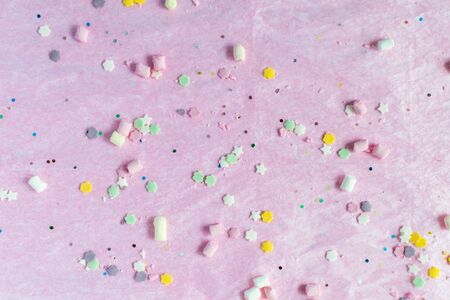Understanding Feng Shui and Its Place in the UK
Feng Shui, an ancient Chinese art of spatial arrangement and energy flow, has found a curious and harmonious resonance amidst the historic landscapes and vibrant cities of the United Kingdom. Across Britain’s patchwork of centuries-old cottages, Victorian townhouses, and contemporary flats, the principles of Feng Shui intertwine with local sensibilities—encouraging balance between tradition and modernity. Here in the UK, where reverence for heritage meets a growing curiosity about spiritual well-being, Feng Shui is no longer perceived as merely exotic; rather, it has become a thoughtful approach to creating homes that feel both comforting and energetically aligned. British residents are increasingly exploring how the placement of objects, choice of materials, and mindful design can foster harmony not just within their living spaces, but also in daily life—reflecting a uniquely British blend of pragmatism and spiritual openness. Whether it’s welcoming good fortune in a Georgian terrace or cultivating peace within a bustling London flat, Feng Shui’s timeless wisdom finds fresh expression across the UK’s diverse architectural and cultural landscape.
Traditional Feng Shui Materials: Stones, Woods, and More
When wandering through the enchanting corridors of British heritage homes or even the bustling markets of London, one might notice a subtle, mystical presence: lucky charms crafted from time-honoured materials. In Feng Shui, the selection of these materials is not arbitrary; each carries its own energy and symbolism, deeply rooted in centuries-old traditions. For UK residents looking to invite positivity and harmony into their lives, understanding the significance behind these materials can be both enlightening and practically beneficial.
The Allure of Stones: Jade & Rose Quartz
Jade, long celebrated in Chinese culture, is revered for its protective qualities and ability to attract prosperity. Its cool green hue offers a calming influence, making it an excellent choice for those seeking peace amidst Britain’s often grey and rainy days. Similarly, rose quartz—a gentle pink stone—symbolises love and emotional healing. It is said that keeping rose quartz close can soften even the stiffest upper lip, inviting warmth into traditional British homes.
| Material | Symbolism in Feng Shui | Cultural Connection |
|---|---|---|
| Jade | Protection, Prosperity | Popular in East Asian artefacts; admired in Victorian jewellery |
| Rose Quartz | Love, Emotional Healing | Sought after in modern holistic shops across the UK |
The Warmth of Woods: Sandalwood & Beyond
Sandalwood is cherished for its soothing fragrance and spiritual resonance. Traditionally used in incense and mala beads, sandalwood fosters clarity and purification. The comforting aroma is especially welcome during Britain’s long winters, creating an inviting atmosphere reminiscent of ancient rituals. Other woods such as pine or oak—common in British landscapes—can also be incorporated, blending local charm with Eastern wisdom.
A Blend of Tradition and Local Heritage
While classic Feng Shui often highlights jade or sandalwood imported from afar, many UK residents are now exploring locally-sourced materials with similar energetic properties. For instance, amber from the Norfolk coast or native British crystals can be thoughtfully included in lucky charms. This approach not only respects traditional beliefs but also honours the unique spirit of place found throughout England, Scotland, Wales, and Northern Ireland.
Historical Roots Meet Contemporary Living
The enduring appeal of these materials lies in their ability to bridge worlds—East meets West, past meets present. Whether displayed on a mantelpiece in a Georgian townhouse or tucked into a pocket during a countryside ramble, these lucky charms serve as gentle reminders that prosperity, harmony, and protection are never far away when we connect with both tradition and our immediate surroundings.
![]()
3. Modern Alternatives: UK-Sourced Materials for Good Fortune
As the energies of Feng Shui weave their way into contemporary British homes, many are choosing to honour local landscapes by selecting native materials for their lucky charms. This not only brings a sense of place and personal resonance but also allows the natural spirit of the UK’s lands to infuse each charm with unique vibrations.
Welsh Slate: Grounding and Protection
Imagine holding a piece of Welsh slate—its weight cool and reassuring in your palm. For centuries, this stone has been quarried from the hillsides of Wales, its deep greys echoing the mystery of misty valleys. When incorporated into Feng Shui charms, Welsh slate is believed to ground energy, offering a protective shield that aligns harmoniously with both modern interiors and ancient wisdom.
Scottish Agate: Balance and Healing
In Scotland’s rugged terrain, agate stones have formed over millennia, their swirling patterns telling stories of earth and time. Scottish agate is prized for its ability to balance energies and foster healing—qualities highly sought after in Feng Shui practice. Placing an agate charm in your home or workspace can invite clarity and calm, drawing on the nurturing strength of Scottish soil.
English Oak: Endurance and Prosperity
The mighty English oak has long stood as a symbol of resilience and abundance across the British Isles. Incorporating English oak into Feng Shui lucky charms not only celebrates national heritage but also channels the tree’s enduring energy into daily life. Whether carved into amulets or used as a base for other symbols, English oak offers a rooted sense of prosperity, making it an ideal modern choice for those seeking good fortune on familiar ground.
4. Blending Eastern Practice with Western Charm
For UK residents, the magic of Feng Shui lucky charms lies in their adaptability—melding time-honoured Eastern wisdom with the distinct character of British style. Imagine a home where the gentle hum of tradition meets the soulful cadence of local heritage. Here, Feng Shui isn’t just imported; it’s reborn, shaped by rolling English gardens, Victorian motifs, and a penchant for subtle elegance.
Begin by considering materials that resonate with both traditions. For example, jade and citrine are classic in Feng Shui, but what if they are set into a silver locket engraved with a Celtic knot or an English rose? Or envision bamboo carved into a Welsh love spoon—a symbol of affection and fortune. Such combinations not only attract auspicious energy but also reflect personal stories and British lineage.
Let’s look at some creative pairings to inspire your own meaningful lucky charms:
| Feng Shui Element | Traditional Material | British Twist |
|---|---|---|
| Wood (Growth & Vitality) | Bamboo, Rosewood | Oak leaf carvings, crafted from British oak |
| Metal (Clarity & Protection) | Brass, Silver | Antique silver pendants with heraldic emblems |
| Earth (Stability & Grounding) | Ceramics, Crystals | Cotswold stone mini-charms or Cornish pottery beads |
| Water (Abundance & Flow) | Aquamarine, Glass | Hand-blown glass from Stourbridge in lucky fish shapes |
| Fire (Passion & Transformation) | Citrine, Red Jasper | Lucky charms incorporating Scottish agate or garnet |
The most powerful talismans feel deeply personal. Try crafting your own lucky charm using a family heirloom—perhaps integrating a vintage brooch or button as the base for your Feng Shui amulet. Or commission a local artisan to fuse East and West in a piece that whispers both ancient blessings and modern British warmth. In this way, every charm becomes more than just an object; it becomes a story, alive with meaning and possibility for your unique UK journey.
5. Caring for and Empowering Your Feng Shui Charms
Integrating Rituals: Blending East and West
To maintain the vitality of your Feng Shui lucky charms in a UK home, consider rituals that honour both Eastern traditions and British sensibilities. Begin by setting a quiet intention when you receive or place your charm—light a beeswax candle, a nod to classic British cosiness, while focusing on your wishes for harmony and luck. In Chinese custom, gentle ringing of bells awakens positive energy; in the UK, you might pair this with the comforting chime of a grandfather clock or even the sound of church bells drifting from a nearby parish.
Placement Tips for British Living Spaces
Where you position your lucky charms matters. In Feng Shui, the front entrance is vital—it welcomes opportunity. In UK homes, place charms near the main doorway, perhaps on a windowsill or beside a coat rack, ensuring they’re visible yet tastefully integrated into your décor. For those living in Victorian terraces or modern flats, position metal-based charms (like brass or copper) near radiators to symbolically ‘warm’ incoming fortune, while crystal charms can be placed on mantelpieces to catch the soft northern light so prevalent in Britain.
Cleansing Practices Rooted in Both Cultures
Energy can stagnate around objects over time. Cleanse your lucky charms regularly—Eastern tradition suggests wiping with salt water or smudging with incense. Adapt this for UK homes by using Cornish sea salt or burning locally-sourced sage or lavender. On particularly blustery days, open your windows wide and let the fresh British air refresh your space and infuse new life into your charms. Make cleansing part of your seasonal routines: as you spring-clean or prepare for winter, give each charm special attention.
Empowerment Through Mindful Connection
Whether it’s jade from Asia or rose quartz sourced from Yorkshire, empower your charms by taking moments to hold them and recall their purpose. Whisper affirmations or blessings—a practice that bridges Chinese mantra recitation and the heartfelt English tradition of spoken wishes. Over time, these mindful rituals deepen your connection to each charm, allowing its material and spirit to resonate within your unique British sanctuary.
6. Finding Ethical and Authentic Materials in the UK
In a land where ancient traditions meet modern sensibilities, sourcing Feng Shui lucky charms in the UK becomes a journey of integrity and mindfulness. The allure of these spiritual objects is not just in their beauty or symbolism, but also in the story behind each material—where it comes from, how it’s made, and the hands that craft it. For those seeking to align their space with positive energy while honouring ethical values, the UK offers both challenges and unique opportunities.
Sourcing Sustainable Materials
The British Isles are rich with natural resources that can be transformed into meaningful charms—think ethically harvested wood from local forests, sea glass collected from rugged coastlines, or hand-spun wool from regional farms. When choosing materials, look for certifications such as FSC (Forest Stewardship Council) for wood or fair-trade labels for stones and crystals. Many artisan markets across the UK now prioritise sustainable practices, so don’t hesitate to ask sellers about their sourcing methods. This ensures your lucky charm not only attracts good fortune but also supports responsible stewardship of the earth.
Authenticity Matters
Feng Shui has deep roots in East Asian culture, so authenticity is essential when selecting imported traditional materials like jade, bamboo, or Chinese coins. Seek out reputable suppliers who specialise in genuine artefacts rather than mass-produced imitations. Many independent shops in cities like London, Manchester, and Edinburgh work directly with craftspeople overseas, ensuring every piece has a traceable origin and cultural respect woven into its creation.
Combining Tradition with Local Flair
For a truly personalised touch, consider blending traditional Feng Shui materials with elements found locally. A Scottish pebble engraved with an auspicious symbol or Cornish tin shaped into a protective amulet creates a fusion of East and West—each piece imbued with both time-honoured wisdom and local spirit.
Making Informed and Ethical Choices
Above all, trust your intuition when selecting your lucky charm. An object chosen with care and consciousness radiates a more powerful energy. Take time to research, connect with local artisans, and ask questions about provenance and production. By doing so, you create not only a harmonious home but also contribute positively to communities near and far—a true embodiment of Feng Shui principles brought to life on British soil.


